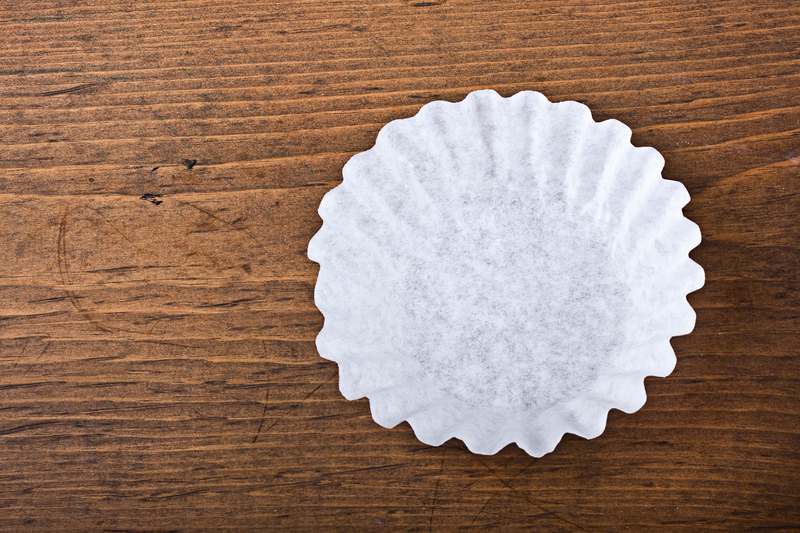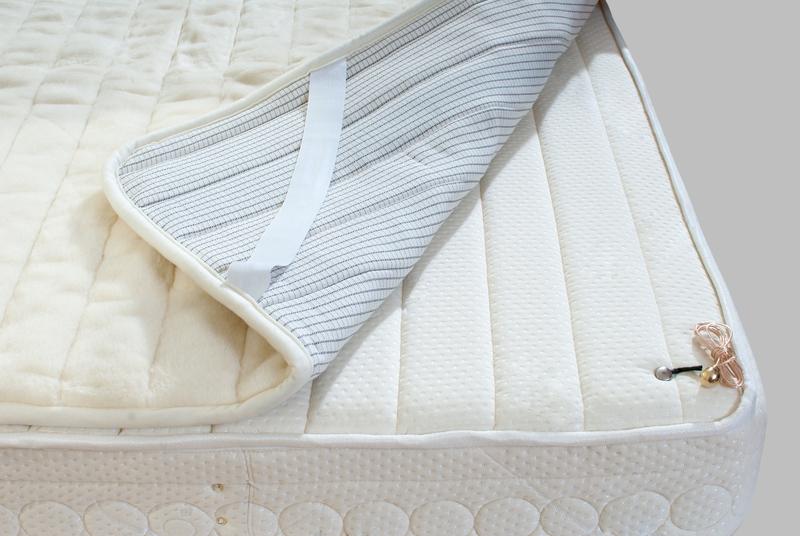The Need for Superior Air Quality in Home and Commercial Settings
Posted on 01/10/2025
The Importance of Superior Air Quality in Homes and Commercial Settings
In today's rapidly urbanizing and industrializing world, ensuring superior air quality at home and in commercial environments has never been more critical. Air quality directly impacts human health, productivity, and overall well-being. As we spend around 90% of our lives indoors, understanding and improving indoor air quality becomes paramount. This comprehensive article explores the necessity, challenges, and effective solutions for achieving and maintaining high-grade air quality in both residential and business spaces.

Understanding Indoor Air Quality
What Is Indoor Air Quality (IAQ)?
Indoor Air Quality (IAQ) refers to the condition of the air within and around buildings and structures, especially as it relates to the health and comfort of occupants. It involves factors such as temperature, humidity, ventilation, and the presence of contaminants including dust, mold, smoke, chemicals, and biological molecules.
Why Is Indoor Air Quality So Important?
- Health Effects: Poor indoor air quality can cause or amplify respiratory problems, allergies, asthma, and even long-term diseases like lung cancer.
- Productivity & Comfort: High-quality air enhances focus, comfort, and productivity in workplaces and living spaces.
- Mental Well-being: IAQ influences mental health, with fresh and clean air promoting sharper thinking and better mood.
- Economic Impact: Businesses can save costs related to absenteeism, health care, and energy bills by maintaining good air quality.
Challenges in Achieving Superior Air Quality
Common Sources of Indoor Air Pollution
Understanding the sources of indoor pollutants is crucial for effective mitigation. Common contributors include:
- Building Materials: Carpets, paints, adhesives, and furniture often emit volatile organic compounds (VOCs).
- Cleaning Agents: Many cleaning and disinfecting products release harmful chemicals into the air.
- Combustion Sources: Cooking stoves, heaters, fireplaces, and tobacco use produce carbon monoxide, nitrogen dioxide, and particulate matter.
- Mold and Moisture: High humidity and water leaks can lead to mold, bacteria, and allergens.
- Outdoor Pollutants: Polluted outdoor air can infiltrate buildings through ventilation or open windows.
- Poor Ventilation: Inadequate air exchange can allow pollutants to accumulate indoors.
Hidden Dangers: The Problem of Invisible Pollutants
Some of the most dangerous airborne contaminants are undetectable to our senses. Gases like radon, carbon monoxide, and minuscule particulates can linger without obvious signs, posing serious overlooked risks. Regular monitoring and proactive air purification are essential to address these threats effectively.
Superior Indoor Air Quality: A Necessity for Both Home and Work
Health Implications of Poor Air Quality
Continued exposure to suboptimal air can lead to:
- Short-term symptoms: Headaches, dizziness, fatigue, eye, nose, and throat irritation.
- Chronic Respiratory Issues: Asthma, bronchitis, aggravated allergies, and other lung diseases.
- Increased Risk of Severe Conditions: Cardiovascular problems, cancer, and a reported rise in premature mortality rates.
Vulnerable Groups at Greater Risk
- Children: Developing bodies are more susceptible to airborne toxins.
- Elderly: Pre-existing health conditions can exacerbate the impact of polluted air.
- Office Workers: Employees spending hours in inadequately ventilated environments are especially at risk.
- Individuals with Respiratory Problems: Asthmatic and allergic individuals are sensitive to even minor pollutants.
The Benefits of Exceptional Air Quality in Homes
Enhanced Family Health and Comfort
- Reduces Spread of Illnesses: Superior air quality helps decrease the transmission of airborne diseases and infections.
- Promotes Restful Sleep: Cleaner air creates a better sleeping environment and improves overall well-being.
- Protects Children and Elderly: Both age groups benefit greatly from low-pollutant environments.
Efficiency and Longevity of HVAC Systems
Maintaining clean indoor air reduces the strain on HVAC systems, limiting dust and pollutant buildup. This extends the lifespan of your appliances and lowers maintenance costs.
Odor Removal and Fresher Living Spaces
Effective air purification eliminates unwanted odors from pets, cooking, smoke, and dampness, ensuring your home always feels inviting and clean.
The Vital Role of Superior Air Quality in Commercial Settings
Impact on Workplace Productivity
- Enhanced Focus and Efficiency: Employees in well-ventilated, clean-air offices are more alert and capable.
- Reduced Absenteeism: Clean air means fewer sickness-related days off and a healthier workforce.
- Employee Satisfaction: Pleasant air environments contribute to higher morale and employee retention.
Regulatory Compliance and Brand Reputation
- Meeting Legal Standards: Governments and health organizations set IAQ requirements. Non-compliance can result in fines and sanctions.
- Corporate Social Responsibility: Superior indoor air quality demonstrates a commitment to staff welfare and environmental stewardship.
- Customer & Client Perceptions: Clean, healthy air makes a positive impression on visitors and clients, bolstering reputation.
How to Achieve Superior Air Quality: Practical Solutions
Proactive Steps for Homes and Businesses
- Regular Ventilation: Open windows frequently and utilize exhaust fans in kitchens and bathrooms.
- Invest in Air Purification: Use high-quality air purifiers equipped with HEPA and activated carbon filters to capture both particles and chemicals.
- Monitor Humidity Levels: Maintain relative humidity between 30% and 50% to discourage mold growth.
- Control Sources: Choose low-VOC paints and furnishings, and limit use of air fresheners and toxic cleaning products.
- Routine Cleaning: Vacuum and dust regularly with HEPA-filtered appliances to limit allergen buildup.
- Greenery Indoors: Certain houseplants can naturally filter indoor air, though they should complement--not replace--other measures.
- Schedule Professional Inspections: Periodic professional IAQ assessments help identify hidden contaminants and suggest optimizations.
Technological Innovations Enhancing Air Quality
Advancements in indoor air technology allow for superior management of pollutants. Some notable innovations include:
- Smart Air Quality Monitors: Devices detect and alert users to spikes in pollutants and recommend actions.
- Ultraviolet (UV) Light Purification: UV-C lamps in HVAC systems kill microbes, bacteria, and viruses to improve air sanitation.
- Energy Recovery Ventilators (ERVs): Modern buildings use ERVs to improve ventilation without compromising energy efficiency.
Special Considerations for Commercial Establishments
- Industrial-Grade Filtration: Commercial spaces often require higher-capacity air-filtration systems for effective results.
- Customized Solutions: Factories, restaurants, schools, and offices each have unique pollutant profiles requiring tailored approaches.
- Staff Training: Empowering staff to recognize and address IAQ issues is crucial for ongoing success.
Key Indicators: When Your Indoor Air May Need Improvement
- Frequent headaches or allergy symptoms indoors
- Lingering odors and stale atmosphere
- Visible mold growth or water stains
- Condensation on walls or windows
- Increased dust buildup on surfaces
- High carbon dioxide levels causing fatigue

Expert Recommendations for Maintaining Superior Air Quality
Regular Monitoring and Continuous Improvement
Superior air quality maintenance is not a one-time task. It requires a commitment to ongoing improvement:
- Schedule periodic IAQ assessments and update your management strategies as building usage changes.
- Replace air filters regularly and ensure HVAC systems receive professional maintenance at least twice a year.
- Stay updated with the latest IAQ technologies and health recommendations to keep your home or office safe.
Conclusion: Investing in Superior Air Quality Pays Dividends
The undeniable need for superior air quality in homes and commercial settings extends far beyond basic comfort. From protecting your family's health and safeguarding vulnerable population groups to enhancing workplace productivity and upholding brand reputation, the benefits are comprehensive and substantial.
Taking a proactive approach with regular assessments, advanced technology, and informed choices leads to cleaner air--and a better quality of life. Make indoor air quality a priority and build a foundation for healthier, happier, and more productive environments wherever you live or work.
Frequently Asked Questions about Superior Air Quality
- What are the best ways to achieve superior air quality at home?
Regular ventilation, air purifiers, source control, and periodic cleaning offer effective air quality improvements. - How often should air quality be checked in commercial buildings?
At least annually, or as recommended given the building type and occupancy, utilizing professional assessment tools for accuracy. - Are plants enough to purify indoor air?
While some houseplants can remove certain toxins, they should be one part of a larger air quality improvement strategy. - What are the warning signs of poor indoor air quality?
Frequent headaches, persistent odors, respiratory discomfort, and visible mold are common indicators.
In summary, prioritizing exceptional air quality is not just a recommendation--it's an essential strategy for any home or business aiming for a safer, healthier, and more successful future.




